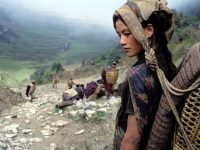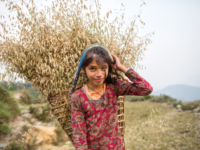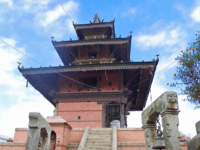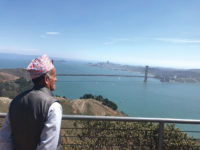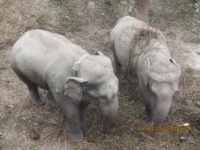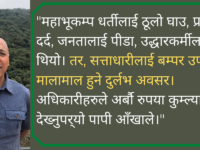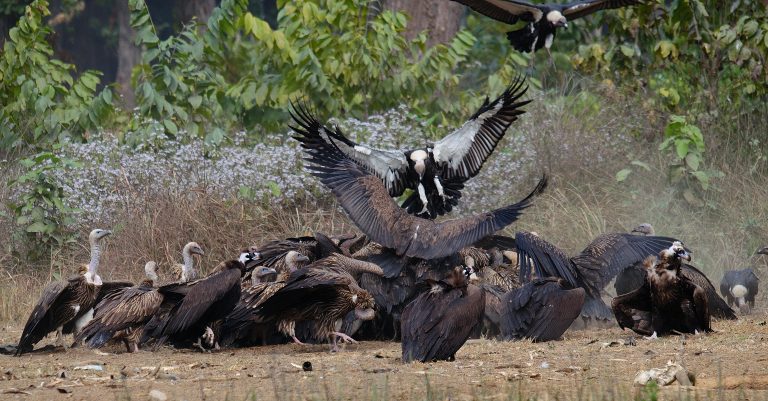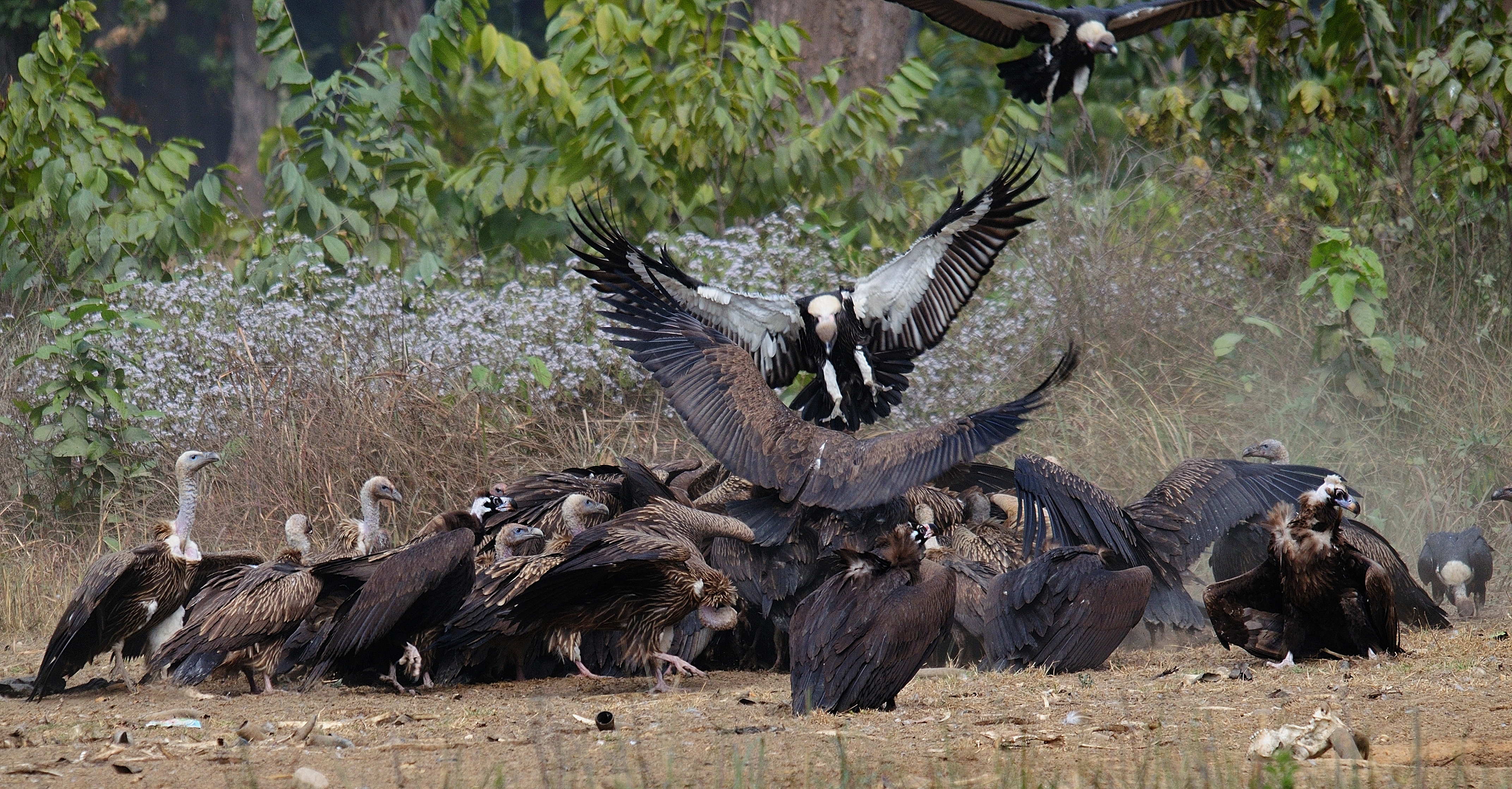
Written by Sanjib Chaudhary.
They are big, ugly, and have a bad reputation. Although vultures have been at the center of a love-hate relationship with humans — they are also our natural allies. Vultures are mostly carrion eaters and are a major part of the natural process of death in the wild. By devouring large amounts of flesh, these large birds help limit the spread of bacteria and disease that can otherwise spread from the decaying animal bodies. However, despite their important role as buffers against the potential spread of illnesses, they are often regarded as more of a pest than an important bird.
As a 2007 survey in India shows, the population of oriental white-backed vultures (Gyps bengalensis) had fallen to 0.1% of its numbers in the early 1990s. In 2009, western Nepal saw its population of oriental white-backed vultures fall by 25% since 2002. Likewise, the population of long-billed vultures (Gyps indicus) and slender-billed vultures (Gyps tenuirostris) also declined drastically throughout the Indian subcontinent. Unfortunately, this trend is not only happening in South Asia, vulture numbers are decreasing worldwide due to less food availability, collision with man-made structures, and poisoning among others.
To combat this decline, some countries have proposed an interesting conservation plan to bring their numbers back up — Jatayu restaurants, or restaurants for vultures.
A restaurant for vultures managed by communities
To conserve vulture populations, vulture feeding stations have been set up in a number of different Asian countries such as Cambodia, India, Pakistan and Nepal. In Nepal, the feeding stations are managed by the nearby communities and have been dubbed Jatayu restaurants, named after the revered character in the Hindu epic Ramayana and the vulture’s Sanskrit name, Jatayu.
If you are in Nepal & a wildlife enthusiastic, visiting Jatayu Restaurant will be an experience of lifetime. I was mesmerized. #conservation https://t.co/rENmDgrkkE
— Rebecca (@_Re_be_cca) August 3, 2017
These restaurants source old and unproductive cattle from farmers and take care of the animals until they die at the animal old-age center. People happily handover their old, unproductive cattle to these restaurants because the animals are well taken care of at the end of their lives.
https://www.instagram.com/p/BLK7x_LAyxE/?tagged=vulturerestaurant
When these cattle die, they are fed to the vultures — but only after they are tested to ensure that the cattle are diclofenac free.
Diclofenac, the killer drug behind the mass deaths of vultures
The use of diclofenac to relieve pain in livestock had been one of the major causes of mass vulture deaths in Nepal, India and other South Asian countries. Even small doses of diclofenac can be fatal for vultures, causing kidney failure in these birds. As the kidney fails to function, uric acid accumulates in the birds’ blood and crystallizes around their internal organs.
Since vultures feed in large groups, a single carcass laced with diclofenac can cause the death of scores of vultures.
The drug was banned in India, Nepal and Pakistan in 2006 and in Bangladesh in 2010.Thanks to the drug ban and also to conservation initiatives by several organizations including local communities, these ‘critically endangered’ bird species have started to bounce back.
In addition, these vulture restaurants have become tourist attractions which draw in both domestic and international visitors, providing nearby communities with an additional source of income. The communities have also begun selling the cattle hide for leather production and the bones for fertilizer.
As the Jatayu restaurants grow in popularity and continue to generate income for the neighboring communities, people who once abhorred and avoided vultures are beginning to change their tune. Slowly but surely, the bad reputation that has plagued these birds is beginning to transform into a better understanding of their important role in the cycle of life and death.
https://www.instagram.com/p/BPfTFN4DOaS/?utm_source=ig_embed&utm_campaign=embed_legacy
If you’re interested in watching these big birds up close, you can visit one of the Jatayu restaurants being run by communities in the Nawalparasi, Rupandehi, Dang, Kailali and Kaski districts.
This news article is written by Sanjib Chaudhary and was originally published on Global Voices.
More about Restaurant of Vulture: Jatayu Restaurant





